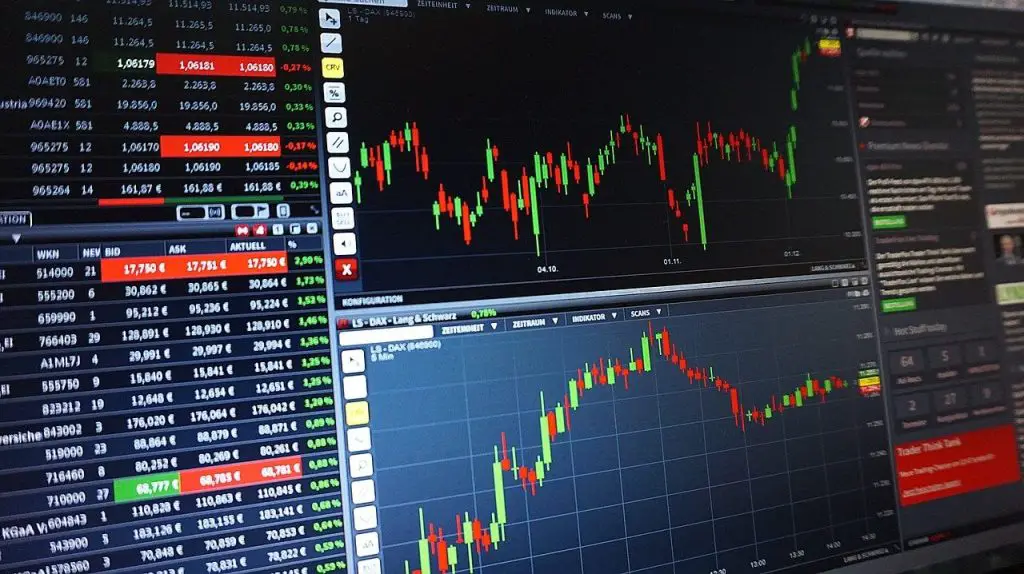The Kenyan stock market resumed Wednesday following the General Election break with a $268 million gain, as early results revealed a close contest involving Deputy President William Ruto and former Prime minister Raila Odinga.
- Twenty-four of the 63 listed equities gained value, whereas seven counters lost value as local investors sought to purchase up low-priced shares.
- The number of traded shares at the Nairobi Securities Exchange (NSE) fell 44 per cent to 10.5 million on Tuesday, compared to Monday.
- Wednesday’s drop to a fresh all-time low of 119.27 units puts this year’s total loss versus the dollar at 5.14 per cent.
A key test for the stock market
The Kenyan stock market resumed Wednesday following the General Election break with a $468 million gain, as early results revealed a close contest involving Deputy President William Ruto and former Prime minister Raila Odinga. On Wednesday, twenty-four of the 63 listed equities gained value. On the other hand, whereas seven counters lost value as local investors sought to purchase up low-priced shares.
Read: Shilling Gains After President’s Swearing-In
The changes increased the market value to $19 billion, the highest since mid-May when shares began to decrease due to foreign investor exodus after a rise in interest rates in established economies such as the United States.
Analysts believe investors considered the political risks involved with the General Election.
The elections on Tuesday were a key litmus test for Kenyan stability owing to the violent election history. On the other hand, the Kenya shilling continued to fall against the dollar, trading at Sh119.27 units on average in the afternoon after starting at Sh119.17.
Share trade declines
The number of traded shares at the Nairobi Securities Exchange (NSE) fell 44 per cent to 10.5 million on Tuesday, compared to Monday. Bond trading remained steady, with a turnover of $30.4 million compared to $30.7 million on Monday. “As witnessed in the market rebound since the end of June, we believe that the elections component is a factor but not a crucial concern when engaging in the NSE,” said Solomon Kariuki, head of research at AIB-AXYS Africa. “Investors have already factored in election concerns, which have been overwhelmed by global considerations.”
This year, investors had already built large shocks into their market views long before the election season. The Russia-Ukraine conflict has particularly forced foreign investors to abandon frontier markets.
Interest rate rises in Western economies facing high inflation had also played a role in international investor movements. This implied that the NSE had firmly become a buyers’ market by the time the voting closed.
According to media reports, the frontrunners, Dr Ruto and Mr Odinga were neck and neck.
According to the Independent Electoral and Boundaries Commission (IEBC), around 65% of the 22.1 million registered voters voted. In the most recent election, approximately 80% of voters turned out. The IEBC’s ultimate decision is likely in days, but technically it has up to a week.
The NSE’s market capitalisation—a measure of investor wealth—has increased by $674 million in the last four trading sessions. The five most significant equities on the market have contributed 86 per cent of these profits. These contributions represent $578 million in proportion to their total share of investor wealth on the NSE.
Big companies reap big
Safaricom, the country’s biggest publicly traded company, earned $285 million between August 3 and Wednesday. During this period, the company’s share price increased by 3% to Ksh30.45. Equity Group, the second biggest listed company, increased its price by 12% to Sh53.25. The price increase resulted in a market valuation rise of $181.7 million to $1.862 billion. During the time, Co-operative Bank, KCB, and EABL raised their market capitalisation by $46.9 million, $42.7 million, and $21.8 million, respectively.
These firms have recorded strong profitability in recent years and issued consistent dividends. The gains have made the companies appealing candidates for investors wanting to preserve value in their portfolios through market downturns.
The market’s rejection of vote concerns mirrored the NSE’s stance in 2017. The NSE gained $611million in the two weeks leading up to the disputed election, which resulted in the nullification of presidential results.
The shilling has been steadily depreciating in the currency market due to dollar demand from importers outweighing supply.
Post-election economic prospects
Import prices have grown dramatically in the last year as economies reopened after the Covid-19 lockdowns. However, the Russia-Ukraine conflict has escalated gasoline and food prices.
Wednesday’s drop to a fresh all-time low of 119.27 units puts this year’s total loss versus the dollar at 5.14 per cent.
The country’s post-election circumstances will determine the market performance after the winner of the presidential election is publicly proclaimed. The 2013 election results were unaffected by a Supreme Court appeal. However, there was significant unrest in 2017 when a similar issue resulted in the annulment of the presidential election results. Additionally, the opposition NASA Alliance boycotted the re-run.
The Supreme Court’s annulment of the presidential election on September 1, 2017, stunned the stock market. Consequently, the prices fell beyond the 10% daily limit resulting in a half-hour trading halt. The market lost $772 million in investor value. This change represents 3.5 per cent in its benchmark NSE 20 index on the day. The loss underscored the potential shocks that the NSE would face in a turbulent post-election environment.
